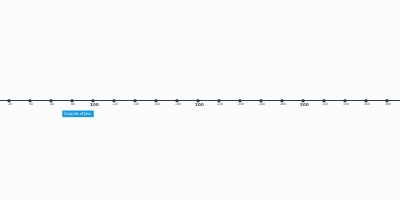Reign of Henry II, England (26 Jan 1154 Jahr – 2 Jul 1189 Jahr)
Beschreibung:
ruled as King of England, Duke of Normandy and Aquitaine, Count of Anjou, Maine, and Nantes, and Lord of Ireland; at various times, he also partially controlled Scotland, Wales and the Duchy of Brittany. Before he was 40 he controlled England, large parts of Wales, the eastern half of Ireland and the western half of France—an area that would later come to be called the Angevin Empire.Henry and Eleanor had eight children – three daughters and five sons. Three of his sons would be king, though Henry the Young King was named his father's co-ruler rather than a stand-alone king. As the sons grew up, tensions over the future inheritance of the empire began to emerge, encouraged by Louis and his son King Philip II. In 1173 Henry's heir apparent, "Young Henry", rebelled in protest; he was joined by his brothers Richard (later a king) and Geoffrey and by their mother, Eleanor. France, Scotland, Brittany, Flanders, and Boulogne allied themselves with the rebels. The Great Revolt was only defeated by Henry's vigorous military action and talented local commanders, many of them "new men" appointed for their loyalty and administrative skills. Young Henry and Geoffrey revolted again in 1183, resulting in Young Henry's death. The Norman invasion of Ireland provided lands for his youngest son John (later a king), but Henry struggled to find ways to satisfy all his sons' desires for land and immediate power. By 1189, Young Henry and Geoffrey were dead, and Philip successfully played on Richard's fears that Henry II would make John king, leading to a final rebellion. Decisively defeated by Philip and Richard and suffering from a bleeding ulcer, Henry retreated to Chinon castle in Anjou. He died soon afterwards and was succeeded by Richard.
Henry's empire quickly collapsed during the reign of his youngest son, John. Many of the changes Henry introduced during his long rule, however, had long-term consequences. Henry's legal changes are generally considered to have laid the basis for the English Common Law, while his intervention in Brittany, Wales, and Scotland shaped the development of their societies and governmental systems. Historical interpretations of Henry's reign have changed considerably over time. In the 18th century, scholars argued that Henry was a driving force in the creation of a genuinely English monarchy and, ultimately, a unified Britain. During the Victorian expansion of the British Empire, historians were keenly interested in the formation of Henry's own empire, but they also expressed concern over his private life and treatment of Becket. Late-20th-century historians have combined British and French historical accounts of Henry, challenging earlier Anglocentric interpretations of his reign.
Zugefügt zum Band der Zeit:
Datum:
26 Jan 1154 Jahr
2 Jul 1189 Jahr
~ 35 years
